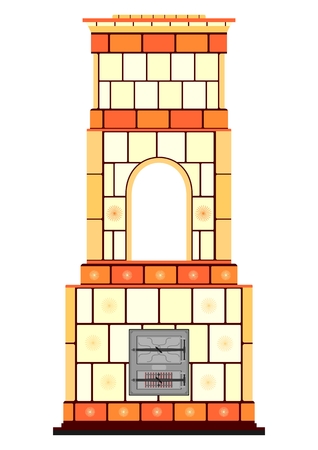1. Understanding Vastu Shastra and Its Relevance to Bathrooms
Vastu Shastra, the ancient Indian science of architecture and spatial arrangement, holds immense significance in Indian homes. Rooted in traditional wisdom and cosmic principles, Vastu aims to harmonize human dwellings with natural energies for overall well-being and prosperity. The application of Vastu is not limited to living rooms or bedrooms; every corner of a house, including bathrooms, carries its own energetic influence. In Indian culture, bathrooms are seen as spaces that handle cleansing and purification, both physically and energetically. Therefore, aligning bathroom design with Vastu guidelines is believed to help maintain positive energy flow and prevent negativity from accumulating in the home. By understanding the relevance of Vastu principles in bathroom spaces, one can make conscious decisions about elements like mirror placement—an aspect often overlooked but highly impactful according to Vastu experts.
General Vastu Guidelines for Mirrors
When it comes to Vastu Shastra, mirrors are considered powerful objects that can amplify or redirect energy, also known as Prana. The correct placement of mirrors in the home, especially in bathrooms, is believed to influence the flow of positive and negative energies. Here is an overview of the core Vastu principles related to mirror placement, using commonly understood Indian terms and practical examples.
Key Vastu Principles for Mirror Placement
- Direction (Disha): According to Vastu, mirrors should ideally be placed on the North or East walls. These directions are associated with prosperity and positive vibrations, attracting good fortune when a mirror reflects them.
- Avoid South and West: Placing mirrors on the South or West walls is generally discouraged as these directions are linked to heavy and stagnating energies, which may block progress (Rukavat).
- No Reflection of Main Door: A mirror should never reflect the main entrance (Dwar) as it is said to bounce back positive energy leaving the house.
- Avoid Bed Reflection: In bedrooms attached to bathrooms (Swasthya Kaksh), a mirror should not directly reflect the bed. This is believed to disturb peace and health (Sukh-Shanti).
- No Broken Mirrors: Keeping cracked or broken mirrors (Tutahua Sheesha) invites negativity (Dosh) into the household.
- Height and Placement: Mirrors should always be installed at least 4-5 feet above ground level, ensuring they do not cut through anyones head when viewed (Kata Hua Sir).
Common Mirror Placement Dos and Don’ts as per Vastu
| Placement Area | Recommended Direction (Disha) | Avoided Direction (Disha) | Vastu Effect (Prabhav) |
|---|---|---|---|
| Bathroom (Snan Kaksh) | North/East Wall | South/West Wall | Energizes space, maintains balance; avoids negativity build-up. |
| Main Entrance (Mukhya Dwar) | N/A (Avoid placing mirrors directly facing entrance) | N/A | Bounces positive energy out if incorrectly placed. |
| Bedroom (Swasthya Kaksh) | Away from bed reflection; North/East wall preferred if necessary. | Avoid reflecting bed; avoid South/West wall. | Avoids disturbance in health and harmony. |
| Pooja Room (Pooja Ghar) | Avoid mirrors in this area entirely. | N/A | Pooja room should remain spiritually pure without reflections. |
This foundational knowledge of Vastu guidelines serves as a starting point for evaluating whether mirror placement in your bathroom is beneficial or not. By following these traditional principles rooted in Indian culture and daily life, one can create a harmonious environment that supports overall well-being and prosperity within the home.

3. Is Placing Mirrors in the Bathroom Auspicious According to Vastu?
When it comes to mirrors in the bathroom, Vastu Shastra offers nuanced guidance rather than a simple yes or no answer. Traditionally, Vastu recognises the mirror as a powerful object that reflects energy and amplifies vibrations within a space. In Indian homes, mirrors are often associated with prosperity when placed correctly, but their placement in the bathroom—a space associated with cleansing and elimination—raises unique concerns.
Many Vastu experts suggest that while having a mirror in the bathroom is not inherently inauspicious, its position and orientation are crucial. A well-placed mirror can help circulate positive energy and bring light into an otherwise enclosed space. However, if placed incorrectly, mirrors can reflect negative energies or even double the ‘waste’ aspect of the bathroom, which is believed to affect health and harmony adversely.
On the positive side, mirrors in bathrooms can enhance natural light, create a sense of spaciousness, and improve daily routines by aiding grooming and self-care. These practical benefits align with the Vastu principle of creating uplifting and functional living environments. On the other hand, Vastu cautions against mirrors directly reflecting the toilet or commode, as this may symbolically multiply negativity or drain prosperity from the household.
Overall, whether placing a mirror in the bathroom is auspicious according to Vastu depends on thoughtful consideration of its direction, what it reflects, and how it interacts with other elements in the room. The goal is always to balance utility with energetic harmony for overall wellbeing.
4. Recommended Directions for Mirror Placement in Bathrooms
When considering mirror placement in bathrooms as per Vastu Shastra, the direction you choose plays a vital role in balancing energy and ensuring harmony within your home. The ancient science of Vastu offers precise guidance on which directions are auspicious and which should be avoided to prevent negative influences.
Ideal Directions for Mirrors in Bathrooms
| Direction | Vastu Recommendation | Key Benefits |
|---|---|---|
| North | Highly recommended | Attracts prosperity and positive energy; enhances clarity of thought |
| East | Recommended | Promotes good health and vitality; brings sunlight energy into the space |
| West | Avoid if possible | Can cause restlessness or instability in energy; only use if no other option is available |
| South | Inauspicious | May invite financial losses and negativity; best to avoid placing mirrors here |
Practical Tips for Implementation
- Avoid placing mirrors directly opposite the bathroom door. This can reflect negative energies back into the home.
- If your bathroom is compact, use mirrors on the North or East wall to create an illusion of space while following Vastu guidelines.
- Ensure that mirrors do not reflect the toilet seat, as this is considered highly inauspicious and may bring discomfort or health issues.
- If a South-facing wall is the only option, consider using frosted or non-reflective glass instead of a mirror.
- Keep mirrors clean and free from cracks or stains. A damaged mirror can disrupt energy flow according to both Vastu and Indian cultural beliefs.
Summary Table: Do’s & Don’ts for Mirror Placement in Bathrooms (as per Vastu)
| Dos | Donts |
|---|---|
| Place mirrors on North/East walls Use full-length mirrors for better energy flow Keep mirrors spotless and intact |
Avoid South/West walls Never allow mirrors to face the toilet seat Do not place two mirrors facing each other |
This detailed approach ensures that your bathroom remains a zone of positive energy, aligning with Vastu principles while also considering practical aspects suited to Indian homes. By following these recommendations, you can experience both spiritual well-being and functional comfort within your living space.
5. Common Vastu Remedies for Incorrect Mirror Placement
If you have realised that the mirror in your bathroom is not placed as per Vastu, do not worry. Many Indian homes face this issue, but there are simple and effective remedies rooted in tradition that can help balance the energies. Here are some easy-to-follow solutions:
Repositioning the Mirror
The first step is to try and shift the mirror to a wall facing north or east, as these directions are considered auspicious according to Vastu Shastra. If possible, place the mirror so that it does not directly reflect the toilet or bathroom door.
Covering the Mirror When Not in Use
If moving the mirror is not feasible, cover it with a plain cloth when the bathroom is not in use. This traditional remedy is believed to prevent negative energy from being reflected back into your space.
Using Vastu-Friendly Colours
Paint the wall behind the mirror with light shades like white, cream, or pale yellow. These colours are said to enhance positive vibrations and reduce any imbalance caused by incorrect mirror placement.
Installing Small Plants
Keeping a small Tulsi (holy basil) plant or money plant near the mirror can help absorb negative energies and promote good health, as per Indian household traditions.
Avoid Broken or Stained Mirrors
Always ensure that mirrors are clean and free from cracks. Broken mirrors are believed to attract negativity according to Vastu and Indian beliefs. Replace damaged mirrors immediately for better energy flow.
Place Sea Salt Bowls
A bowl of sea salt kept in the bathroom can help neutralise negative energy if the mirror cannot be moved. Remember to change the salt regularly for continued effectiveness.
By following these simple and traditional Indian tips, you can easily correct Vastu doshas caused by improper mirror placement in your bathroom, ensuring peace, harmony, and positive vibes in your home.
6. Frequently Asked Questions on Mirror Placement in Bathrooms
Q1: Can we place a mirror directly facing the bathroom door?
As per Vastu Shastra, it is generally not recommended to place a mirror directly facing the bathroom door. This is because mirrors reflect energy, and having one opposite the entrance may cause positive energy (Prana) to bounce back and escape from the bathroom, rather than circulate inside. If possible, place the mirror on a side wall so that it does not face the main door directly.
Q2: Is it auspicious to have multiple mirrors in the bathroom?
While contemporary designs may feature multiple mirrors for aesthetics or utility, Vastu suggests keeping only one main mirror in the bathroom. Multiple mirrors can create confusion of energies, leading to restlessness or imbalance in the household. It is best to avoid mirrored cabinets opposite each other, as this can create a negative energy loop.
Q3: Which direction is best for placing a mirror in the bathroom?
The ideal placement according to Vastu is on the north or east wall of the bathroom. This direction attracts positive vibrations and ensures that natural light is reflected well within the space. Avoid placing mirrors on southern or western walls as it may disturb the harmony and flow of energy.
Q4: Are there any remedies if the existing mirror placement is against Vastu?
If structural limitations prevent you from repositioning your mirror, you can balance energies by ensuring cleanliness around the mirror, keeping it free from cracks and stains, and using subtle lighting. Adding small indoor plants or sea salt bowls near the mirror can also help absorb negative energies as per Indian home traditions.
Q5: Should mirrors be covered when not in use?
This is a common query among Indian households who are mindful of energy conservation. According to Vastu beliefs, covering mirrors at night or when not in use helps reduce disturbance of energies during rest hours. A simple curtain or decorative cloth can be used for this purpose.
Final Thoughts
Understanding these frequently asked questions allows Indian families to make informed decisions about their bathroom spaces. By aligning with traditional wisdom and practical tips, one can harmonise modern living with Vastu principles for peace, positivity, and well-being at home.

